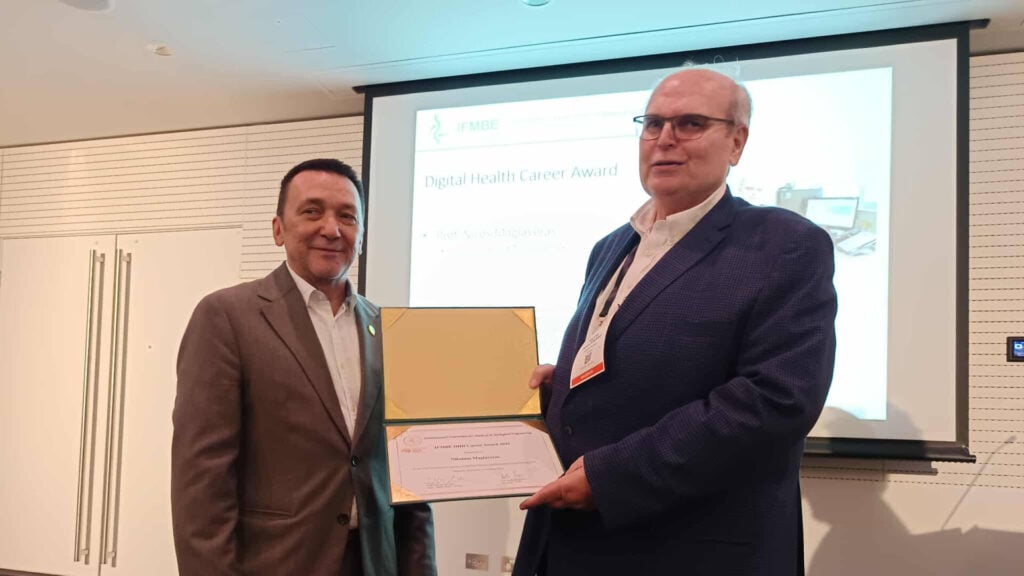Professor Nikolaos Maglaveras has been awarded the 2025 Career Award from the International Federation for Medical and Biological Engineering (IFMBE). One of Greece’s leading biomedical engineers, Prof. Maglaveras was part of a high-level delegation from Greece at the 2025 IUPESM World Congress in Adelaide last week, where the honour was announced.
Prof. Maglaveras told Neos Kosmos that his work focuses on the intersection of engineering, medicine, and information technology.
“My research revolves around developing intelligent systems that can analyse biomedical signals, like the electrical activity of the heart and brain.”
The conference brought together leading scientists in biomedical engineering and medical physics from around the globe, under the theme Bridging the Gap: Science, Technology, and Clinical Practice for a Sustainable World.
“My research revolves around developing intelligent systems that can analyse biomedical signals, like the electrical activity of the heart and brain.”
Prof. Maglaveras said that through the application of “machine learning and advanced signal processing techniques,” he aims to create “smarter, connected health solutions that can improve diagnosis, monitoring, and treatment.”
He said these innovations are already transforming healthcare through “wearable devices that continuously monitor vital signs and generate enormous amounts of data.”
“Our challenge is to turn that data into actionable insights for doctors and patients, enabling personalised, real-time care,” Professor Maglaveras told Neos Kosmos.
Another part of his role, the biomedical expert said, is education—training the next generation of scientists.
“I have had the privilege to mentor many students who are now pursuing their own careers in digital health, both in Greece and internationally.”
Having earned his diploma in electrical engineering from Aristotle University of Thessaloniki in 1982, Professor Maglaveras went on to complete his Master’s and Ph.D. in biomedical engineering at Northwestern University in the United States. He returned to Greece and has dedicated decades to research and teaching at Aristotle University, as the Director of the Laboratory of Medical Informatics.
Prof. Maglaveras’ research includes biomedical signal processing for ECG and EEG, telemedicine, medical imaging, and the development of smart, connected health systems using wearable and mobile technologies. His work is instrumental in advancing personalised health systems that adapt to individual patient needs, improving disease prevention and management.
The scientist and academic has published over 350 papers—an intimidating number—and has participated in more than 40 national and European research projects, which have garnered over 12 million euros in research funding.
From 2008 to 2010, Professor Maglaveras served as President of the European Alliance for Medical and Biological Engineering & Science (EAMBES). He is also an active member of key professional organisations, including the IEEE Engineering in Medicine and Biology Society and the American Medical Informatics Association.
The IFMBE Career Award, announced earlier this year, celebrates Professor Maglaveras’ sustained impact on machine learning, biomedical signal processing, and smart connected health systems. The award ceremony is expected to be held during the IUPESM World Congress on Medical Physics and Biomedical Engineering in Adelaide, Australia, later this year.
This recognition is not only a personal achievement for Professor Maglaveras but also underscores Greece’s rapid and globally recognised progress in digital health.










